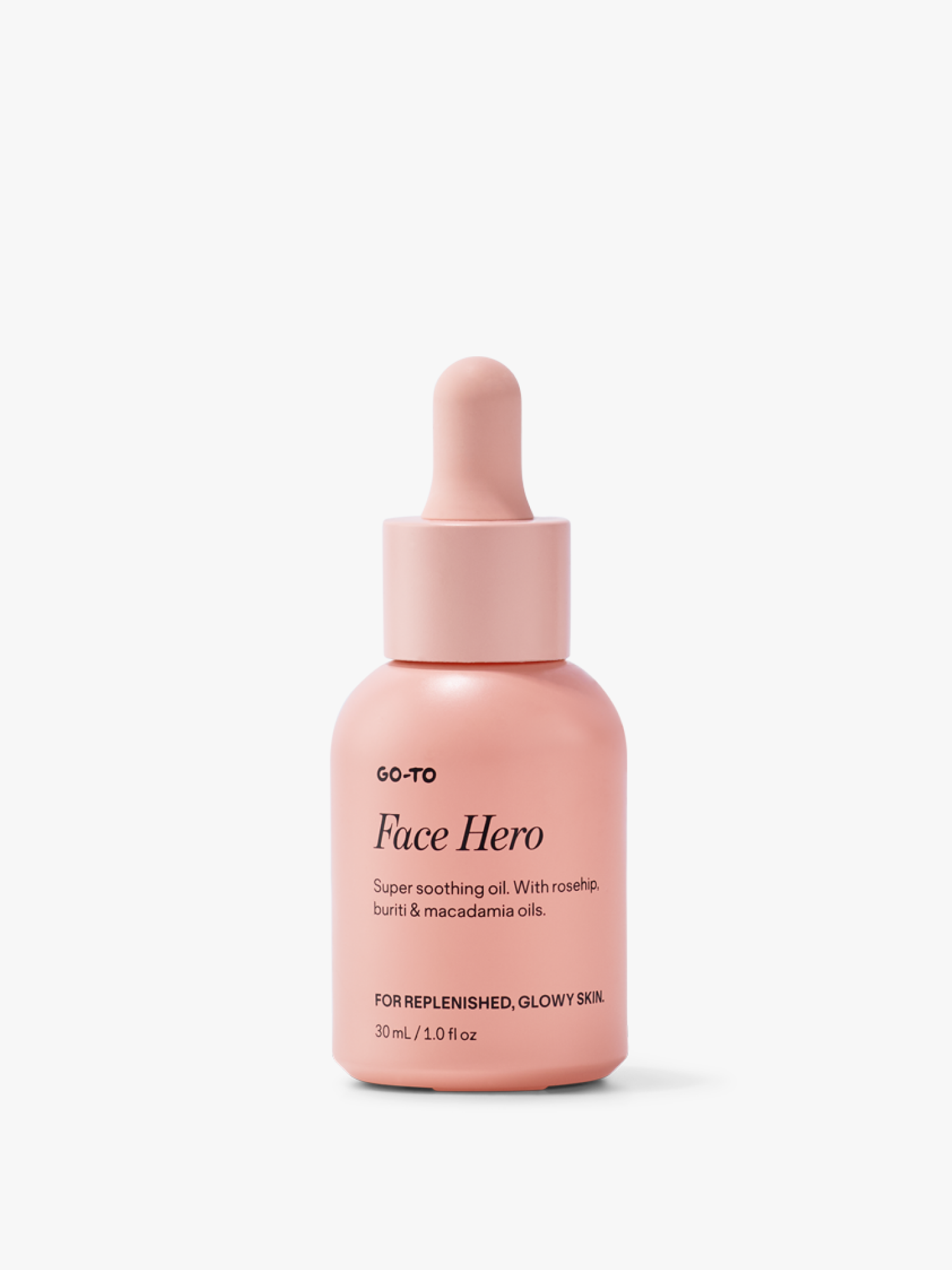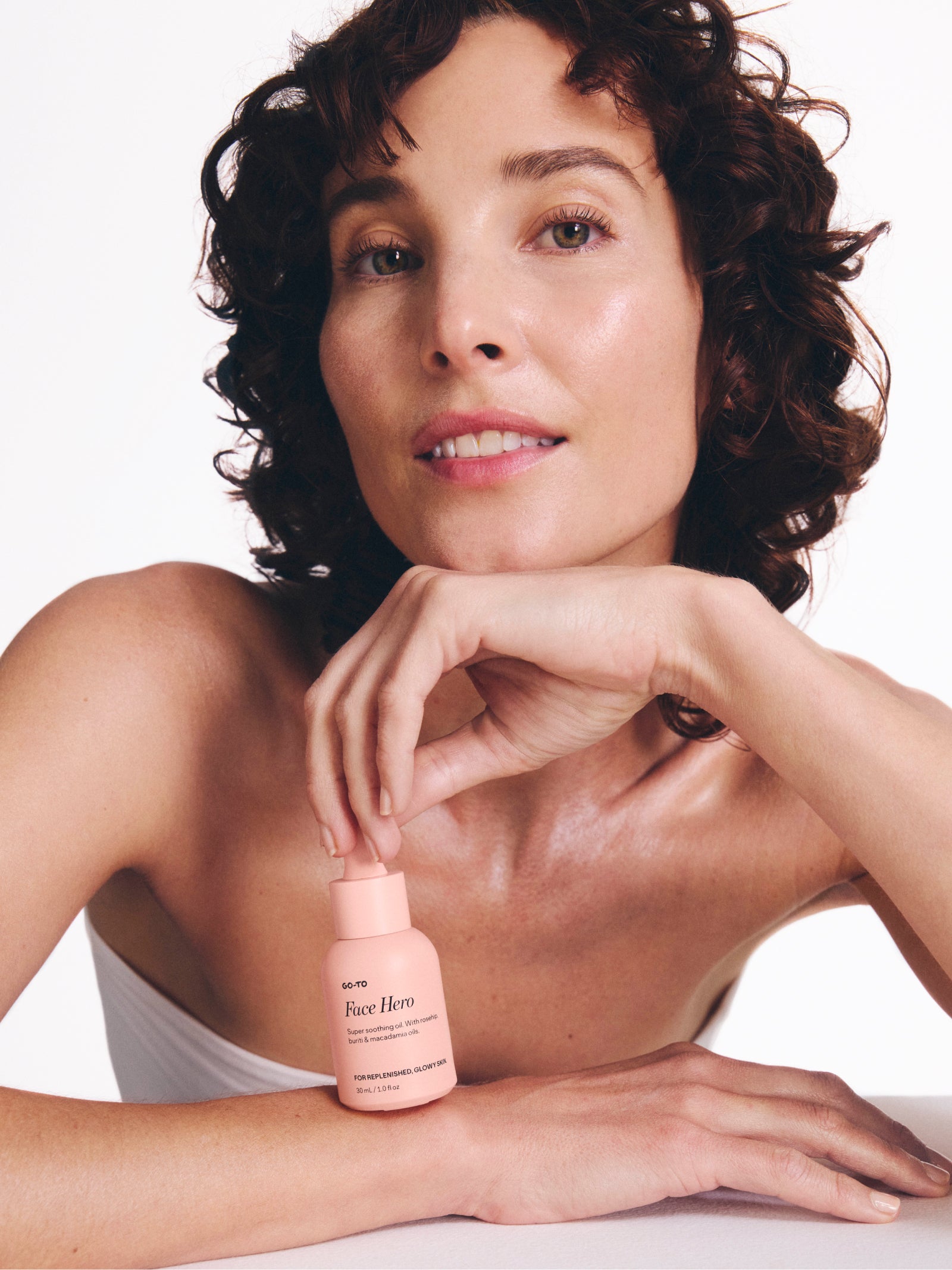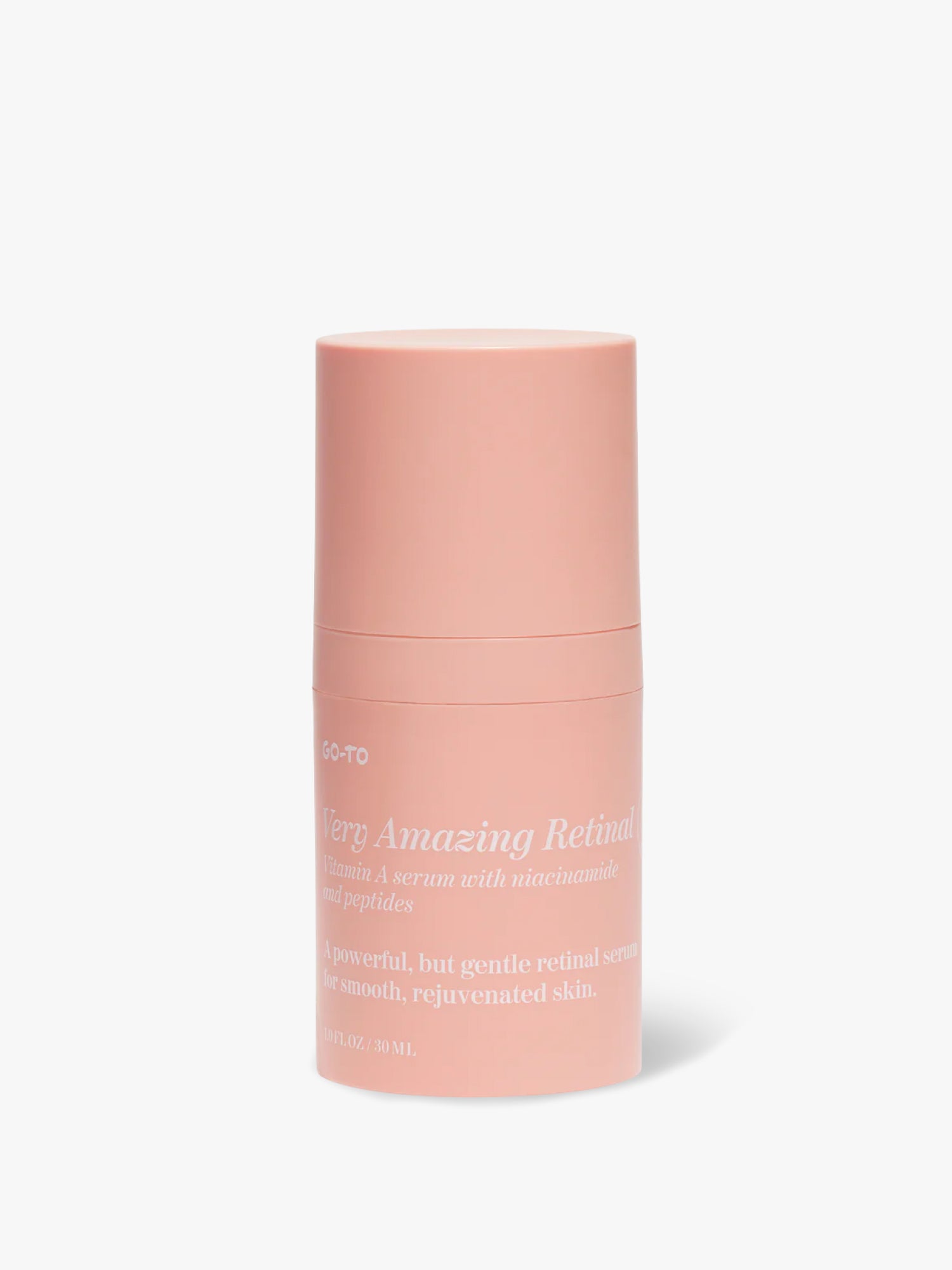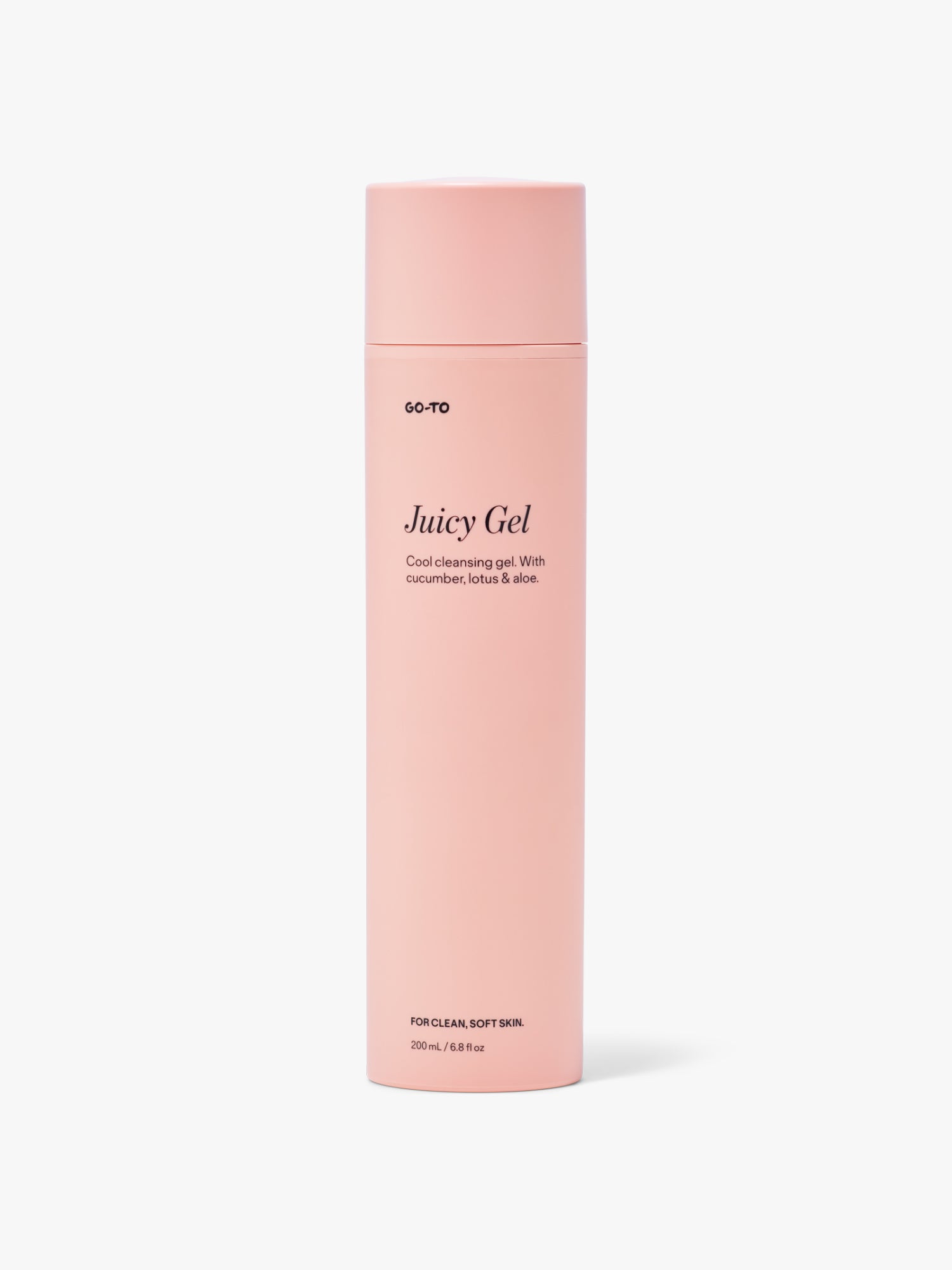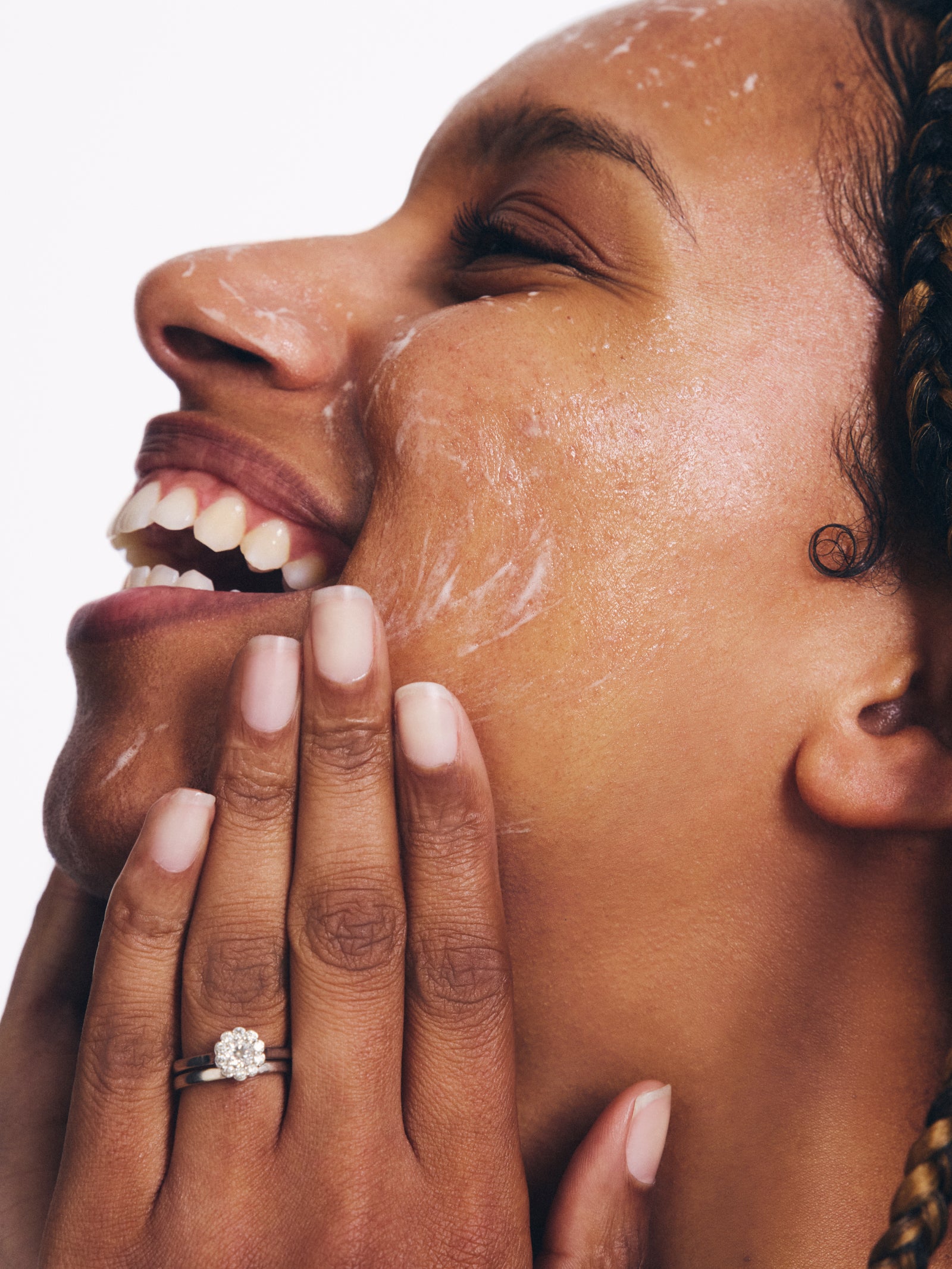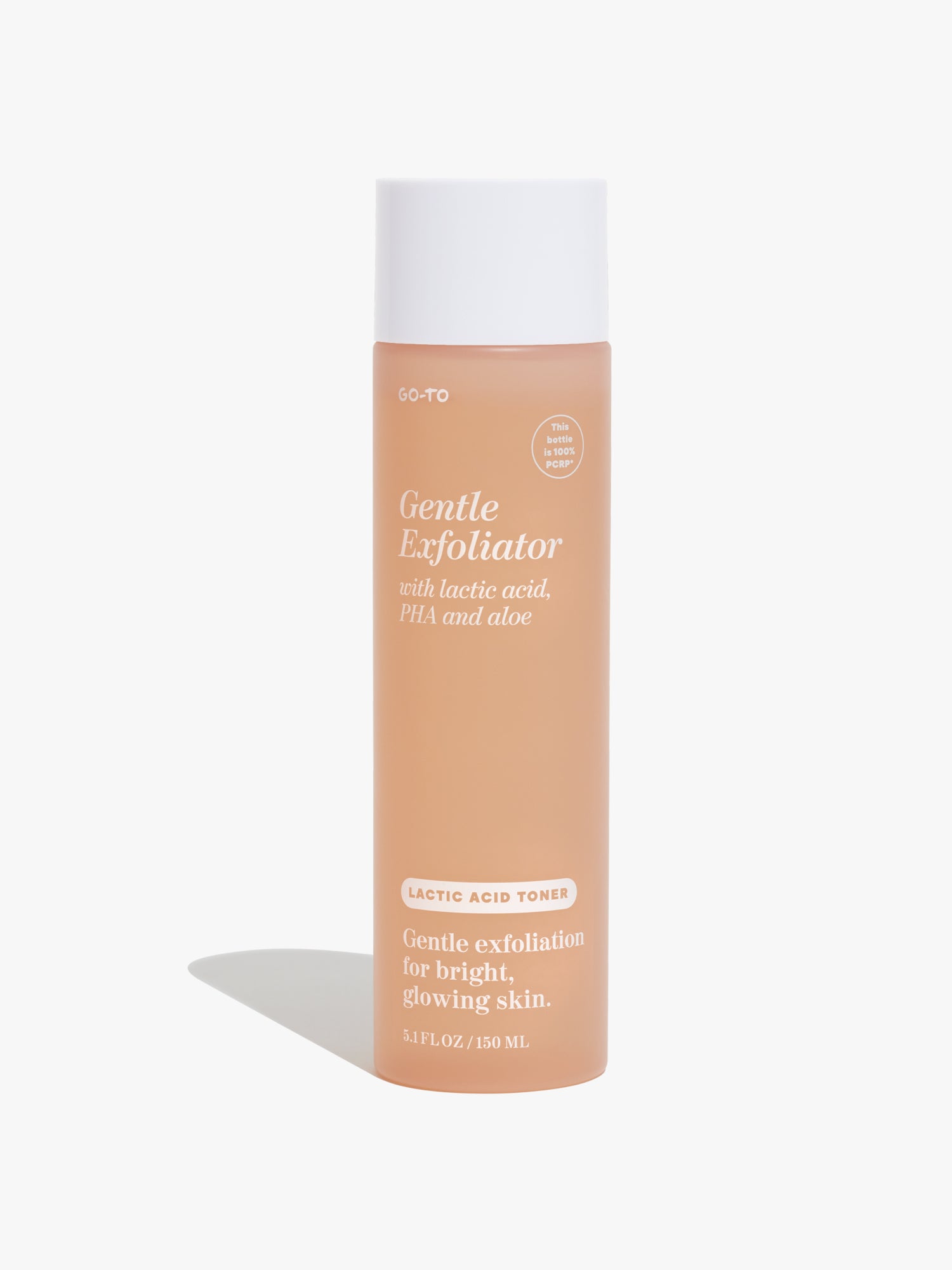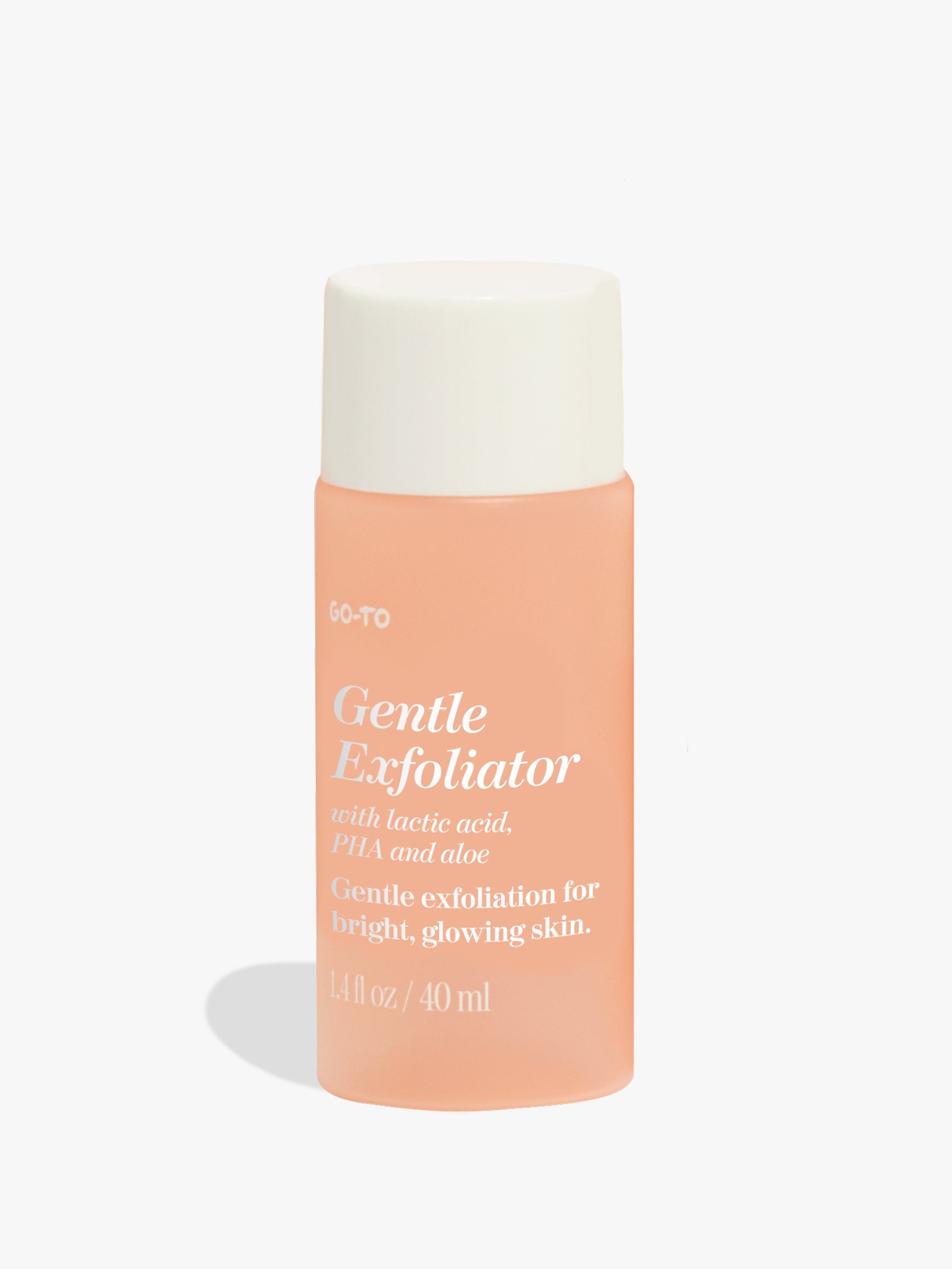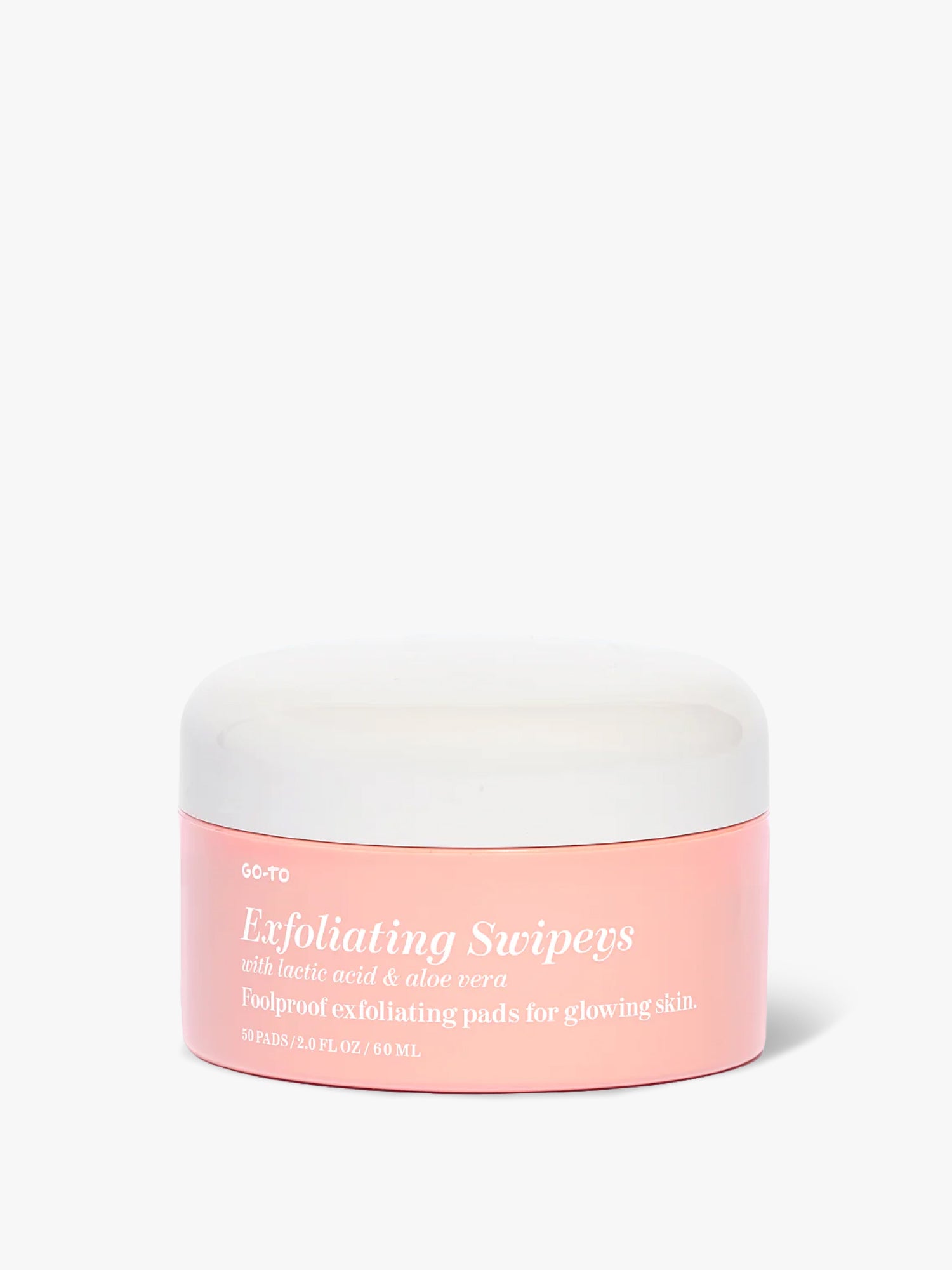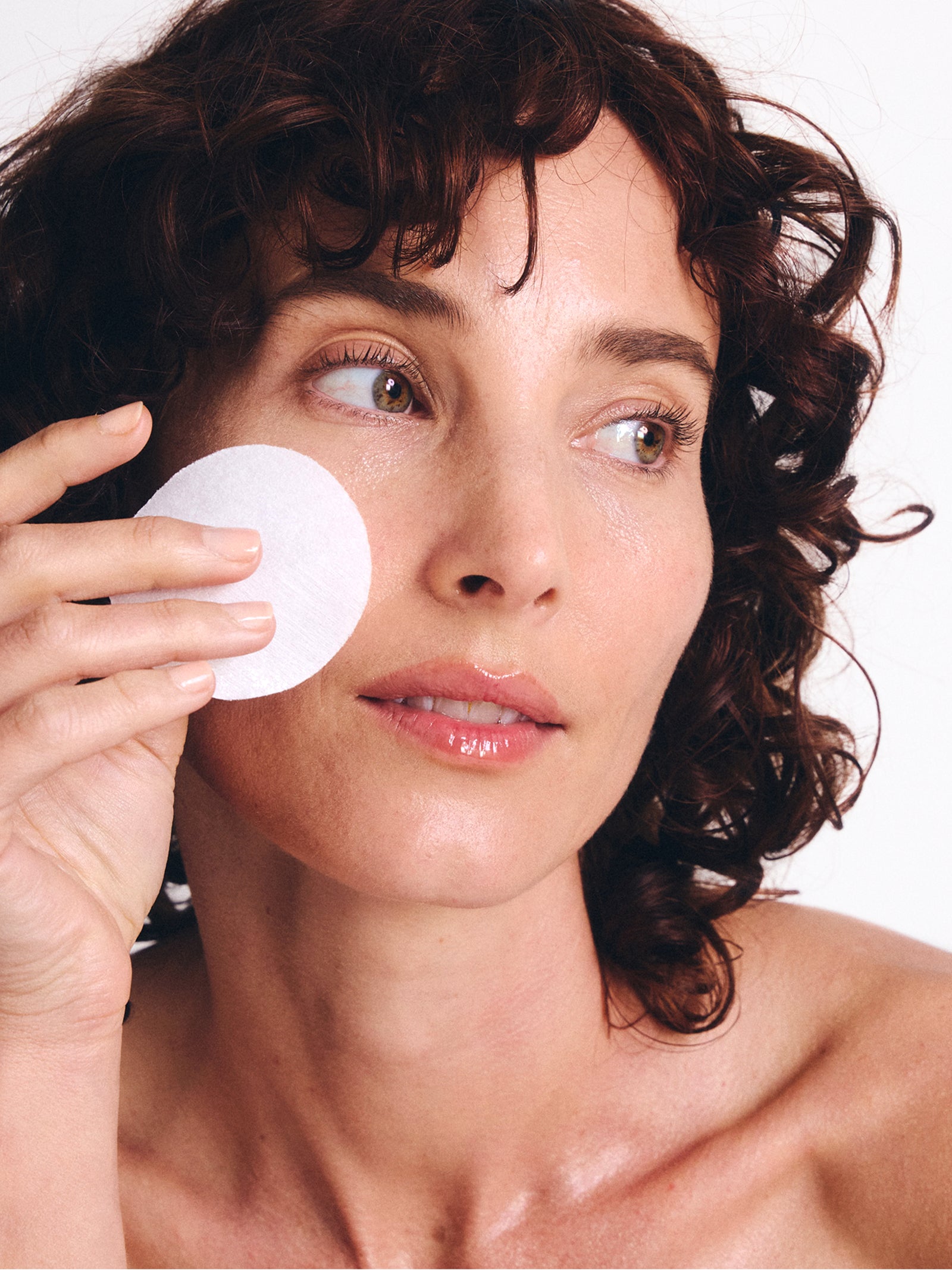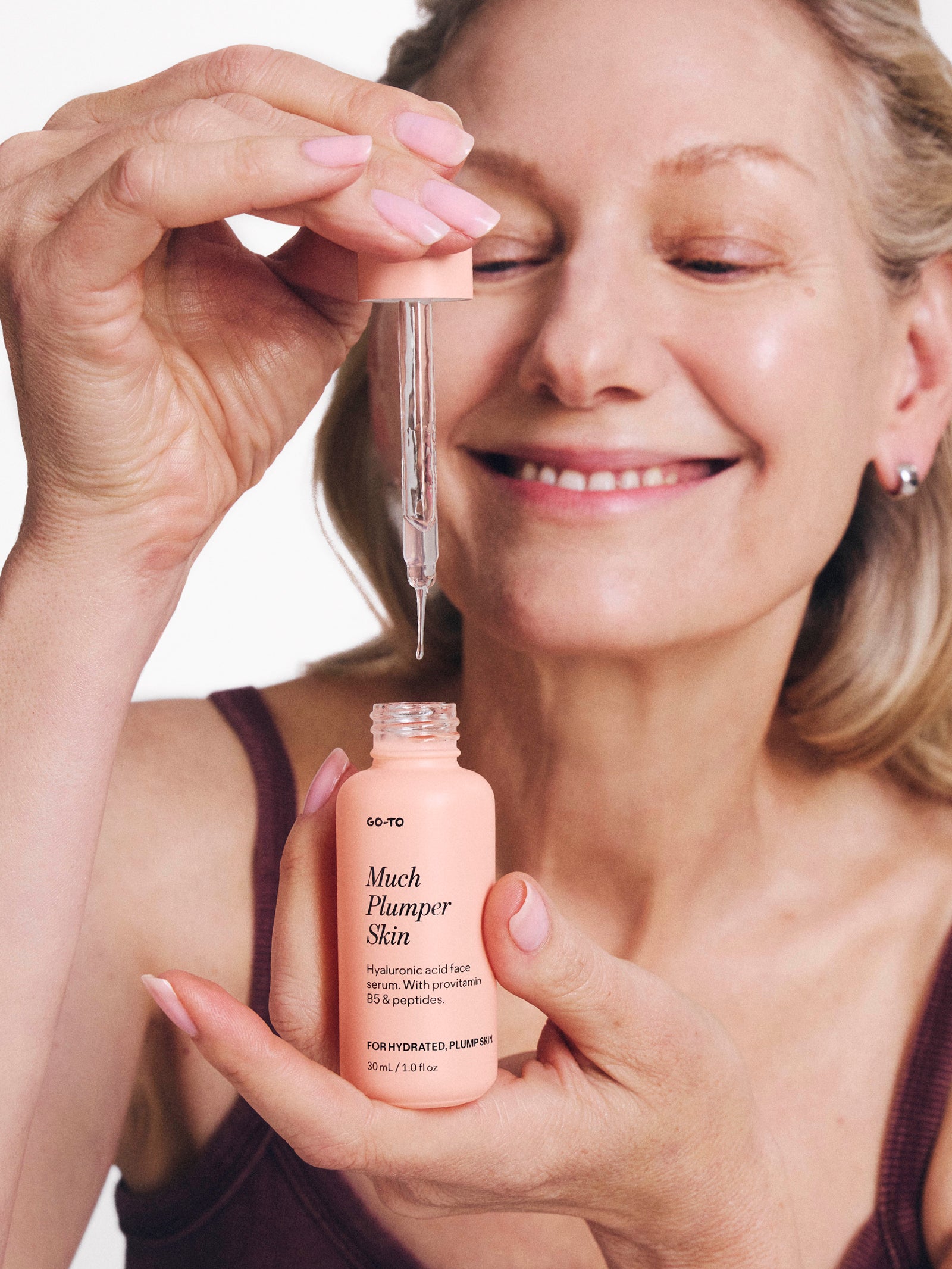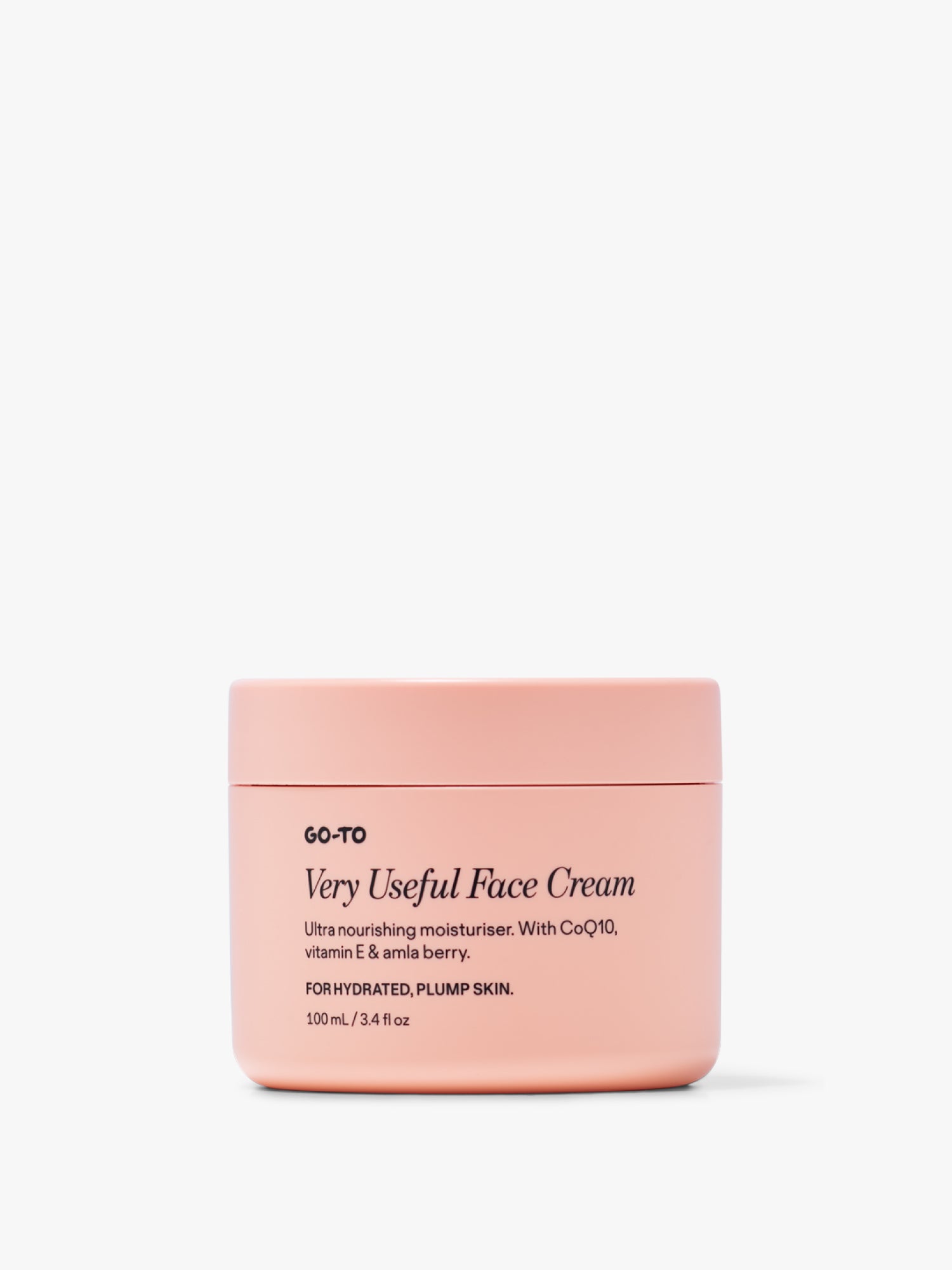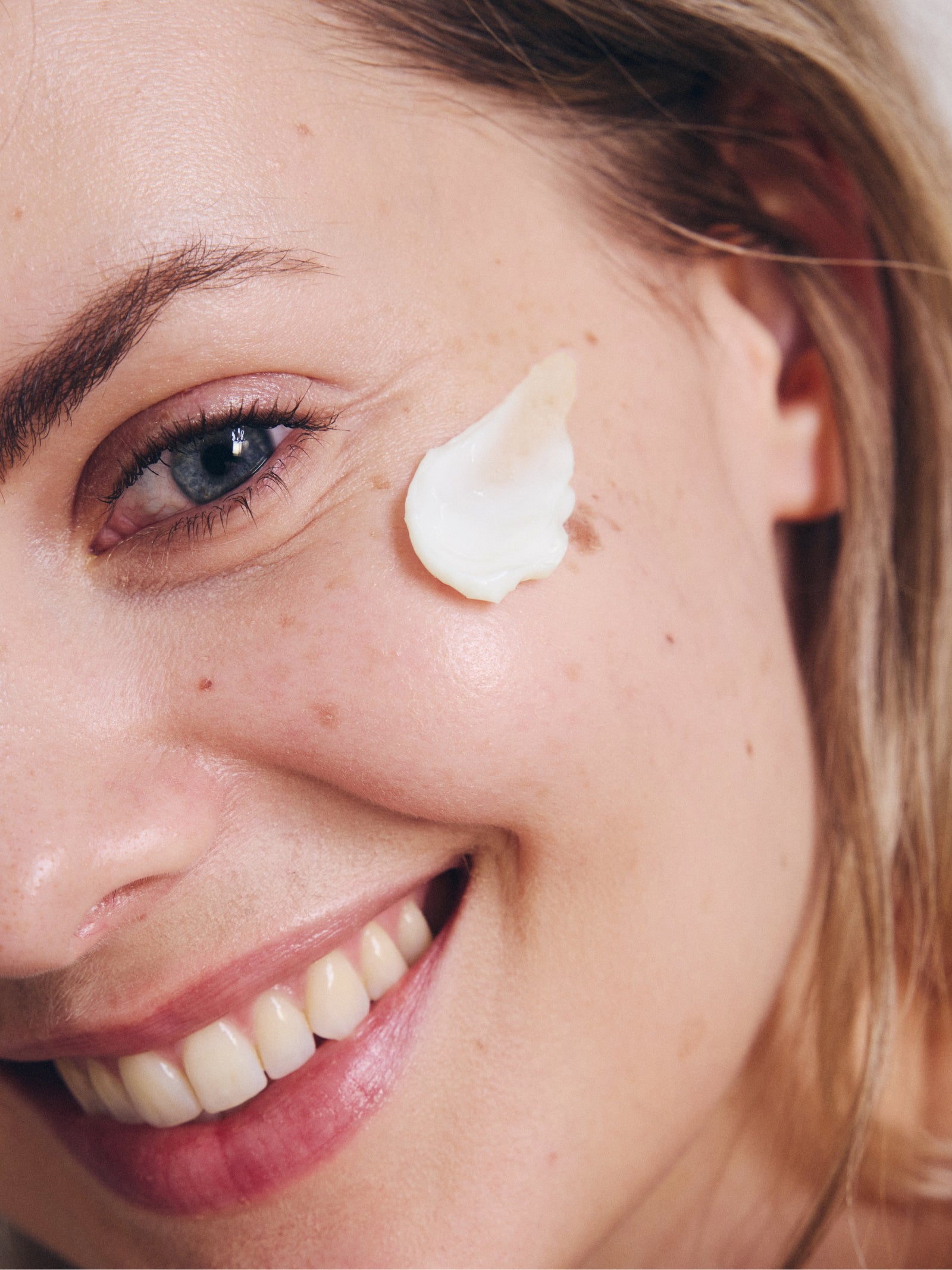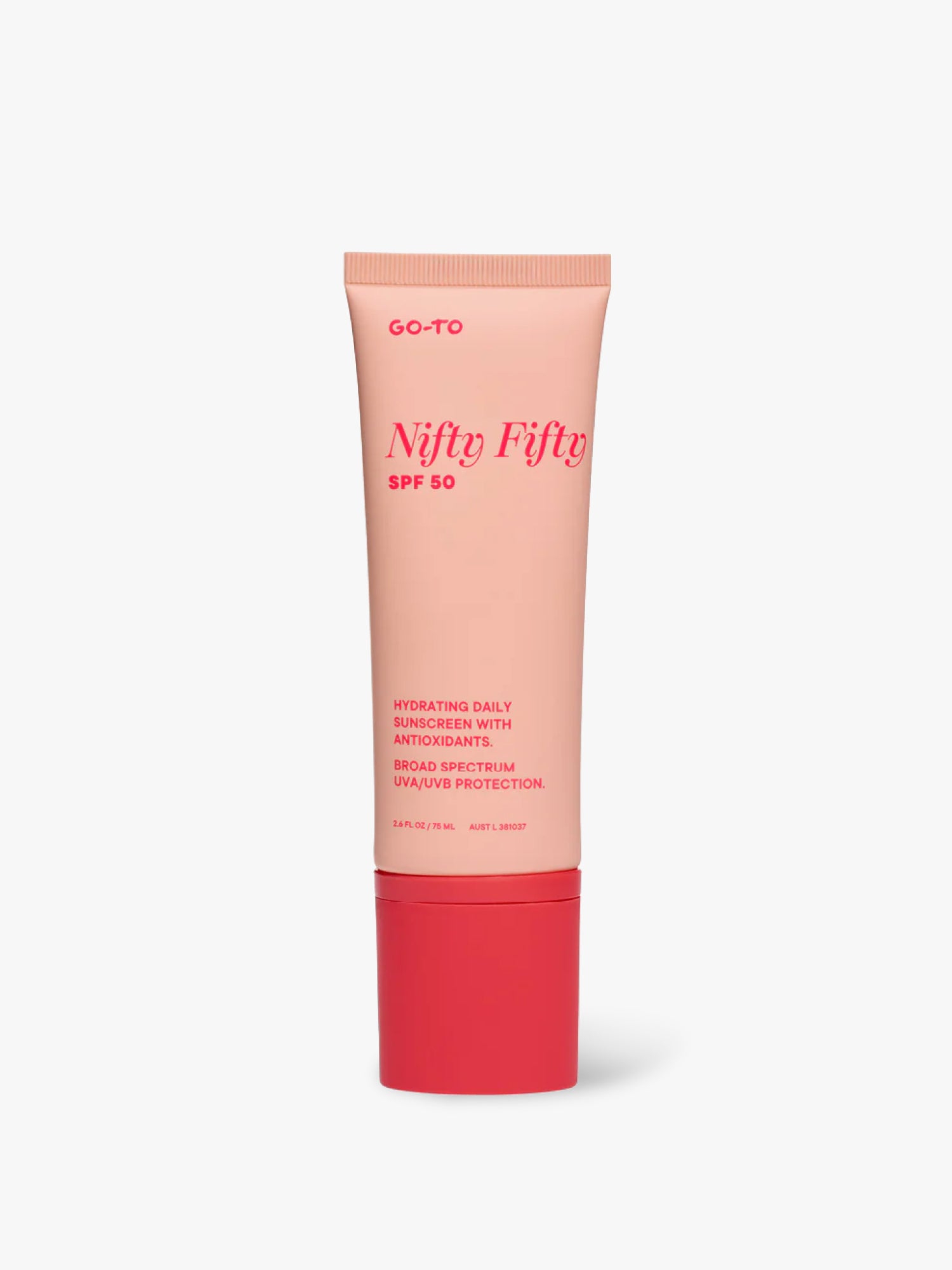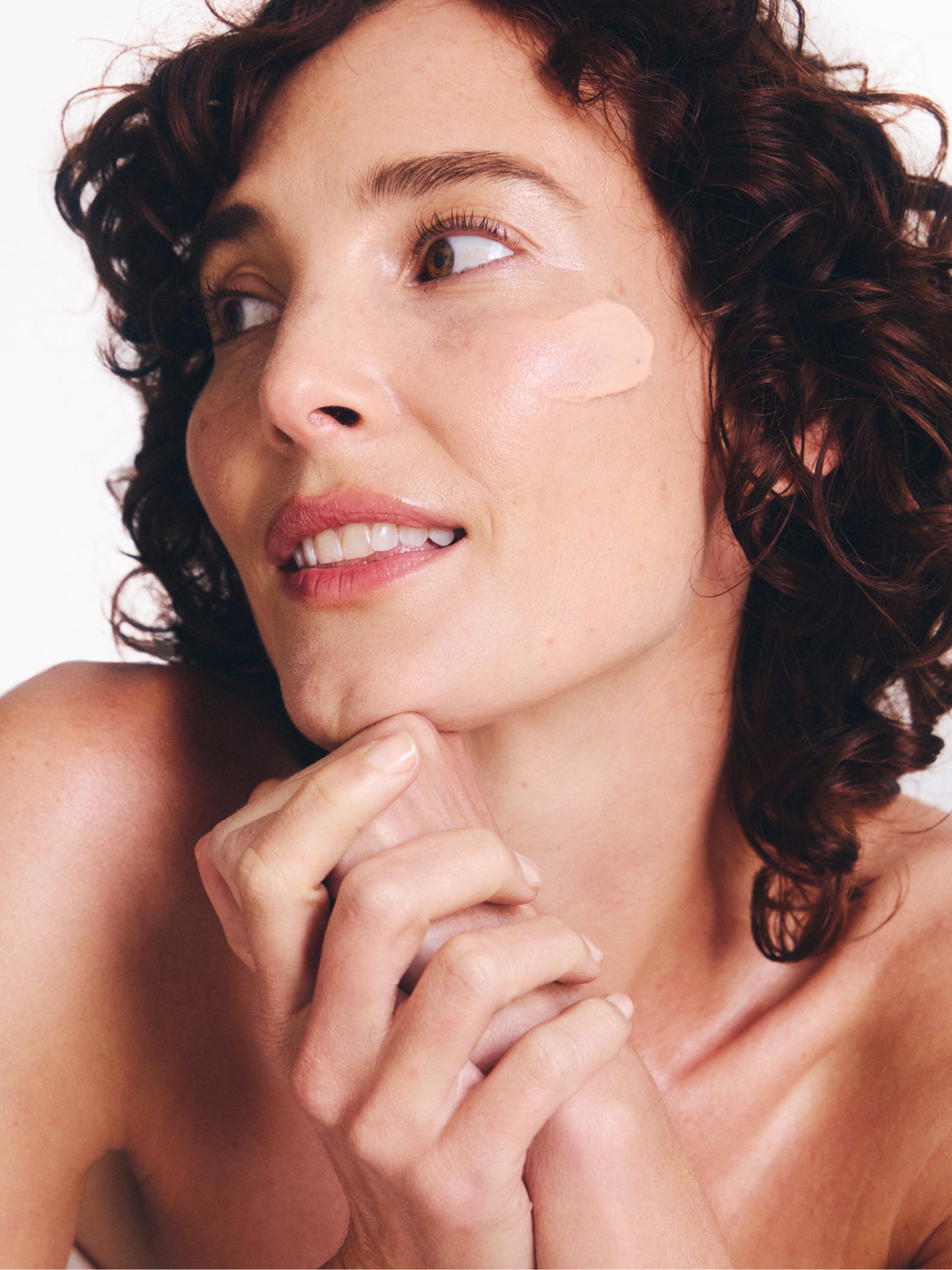Identifying sensitive skin
Having sensitive skin can lead to, or mean you are more susceptible to, skin conditions like eczema and rosacea. (They tend to all get lumped under the sensitive skin category.) However, some common signs and symptoms to keep an eye out for, include: redness, burning, itching, dryness, flaking, rashes, hives.
Look for gentle products that nourish and respect the skin’s barrier. Keep your routine as simple as possible, especially during a flare up and remember: sensitivity isn’t limited to the face! Symptoms can extend to the rest of your body. Which deserves the very same replenishment and care.
Boobs and below, you want to be using a really comforting lotion that protects the moisture barrier and softens even very dry or delicate skin. Go-To’s body lotion, Skin Party, is full of hydrating oils and essential fatty acids (sweet almond, squalane), water-drawing humectants (glycerin) powerhouse occlusives (shea butter, coconut oil), antioxidants (vitamin E, rosemary leaf extract) and calming chamomile, gotu kola and liquorice root extract, which is exactly what the rest of your skin really craves and needs.
What causes sensitive skin?
Your sensitive skin may be a result of intrinsic factors like genetics (a family history of skin sensitivity or skin conditions like eczema and rosacea can increase your likelihood), and general, inevitable, unavoidable ageing (skin becomes thinner and less resilient as we age).
How do you know if you have sensitive skin?
Lots of people tend to think they have sensitive skin when really their skin is just sensitised. There’s a difference. Because sensitised skin is something anyone can bring on, say, by diet, stress, medications, extreme weather or UV, pollution, or applying skincare that’s too harsh, too active, too fragranced.
Sensitive skin is a skin type. It’s commonly genetic, and those who have sensitive skin are typically prone to inflammatory or allergic reactions. If your skin has been easily irritated or reactive for as long as you can remember, you’re most likely dealing with sensitive skin.
How to choose the right skincare products for sensitive skin?
The best thing you can do is opt for products that have been dermatologically tested/suitable for/made for sensitive skin. But despite all that jargon, we still recommend you patch test prior to use.
Can sensitive skin be treated or managed?
There is no one-size-fits-all approach to treating sensitive skin. But there are steps you can take to help prevent further flare ups. Be conservative with chemical exfoliants and scrubs that contain acids in high concentration. They can strip moisture from the skin and upset your moisture barrier. Avoid super hot and scaldy showers (sorry) to save drying out the skin. And tread very carefully with fragrance.





